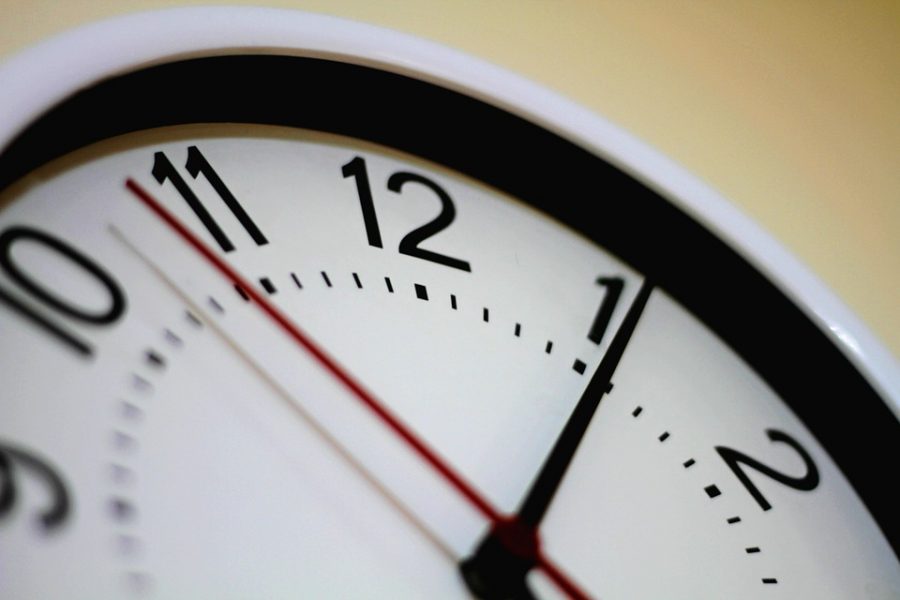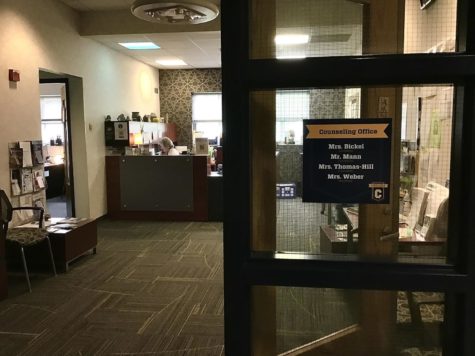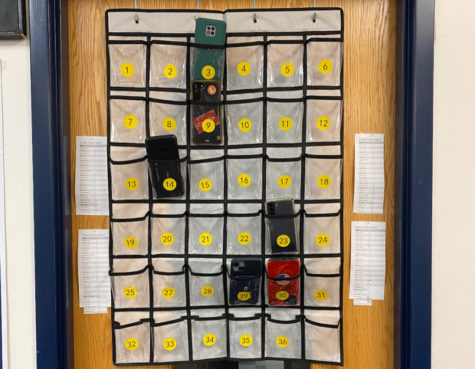School Start Times: Do They Need to be Rethought?
Dragging yourself out of bed at 6 am is a grueling experience that most high schoolers will suffer through at some point. This dilemma, historically viewed as “just something we have to live with,” has become more prominent as a connection between sleep and productivity is becoming increasingly known among students. Many school districts around the country are considering changing school start times for their students’ mental health.
Changing start times doesn’t necessarily have to be a drastic change to the school day. “I think that even if school was moved back even just 30 minutes it would allow more time in the morning for sleep and getting ready for school,” CHS student Amy Budd (25’) said.
Some suggest that early start times have negative effects on adolescents while other mental health experts like the American Academy of Sleep Medicine (AASM) have begun to advocate for a later start to the school day for the health benefits of students and teachers alike [1].
According to the AASM, sleep deprived teens are at higher risk of making poor decisions such as substance abuse. In addition to a higher risk of substance abuse, sleep deprived people are nearly two times more likely to suffer from depression and attempt suicide. Almost 69 percent of high school students report an average of 7 hours of sleep per night. This number is just shy of the 8-10 hours of sleep recommended by the Center for Disease Control (CDC) [2].
“During adolescence, teenagers become sleepy later at night and need to sleep later in the morning as a result of that biological sleep rhythmic shift,” Chelsea High School psychology teacher Andrea Maines explained. “However, schools start too early to help mitigate the effects of that biological shift and therefore students have to wake up during the most important part of their sleep cycle in order to get to school on time.”
Despite the undeniable benefits of later start times, some experts argue that a later start time would have a significant negative impact on students’ schedules. Psychotherapist Amy Morin’s research [3] shows that later start times could complicate the study schedules of high school athletes or club members. Morin found that when students get home later, they consequently stay up late doing homework. Pushing start times back may not benefit students in the long run if they can’t afford to take advantage of the extra time.
“Family schedules have been set up to revolve around school schedules and making a major switch to later start times will pose challenges like before and after school care and transportation,” Maines said. “It also becomes difficult to schedule extra-curricular activities and sports practice and games.”
For many students, having time for themselves and with their friends is crucial to their wellbeing. However, maintaining a steady sleep schedule may be a higher priority when they have to wake up early for school. Early start times could end up hurting the mental health of students in the long run.
“People don’t have time in their schedule and the only way to get the recommended amount of sleep is to go to bed early,” CHS student Henry Parker (26’) said. “We shouldn’t have to go to bed early to get sufficient sleep. People don’t have time to see their friends and that’s not great for their mental health either.”
Do the benefits outweigh the costs? It’s ultimately up to the school board to determine what the school’s priorities are and which option would benefit students the most.
Sources:
- https://sleepeducation.org/help-your-teen-recharge-sleep/?scrlybrkr=2b818424
- https://www.cdc.gov/healthyschools/features/students-sleep.htm?scrlybrkr=2b818424#:~:text=The%20American%20Academy%20of%20Sleep,10%20hours%20per%2024%20hours.
- https://www.verywellfamily.com/the-pros-and-cons-of-starting-school-later-2609565https://www.verywellfamily.com/the-pros-and-cons-of-starting-school-later-2609565

Sofia DeMea is a sophomore at Chelsea. This is their second year writing for the Bleu Print. Apart from journalism, they enjoy participating in sports...















Henry • Jun 2, 2023 at 8:18 AM
THIS IS HEAT ???